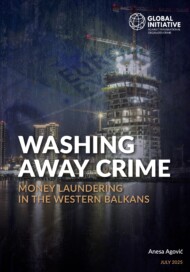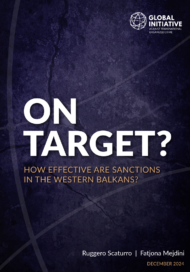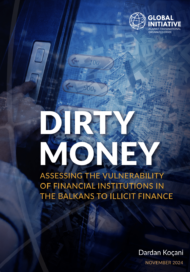Posted on 09 Jul 2025
Money laundering remains a key enabler of organized crime in the Western Balkans, allowing criminal networks to legitimize illicit profits and integrate them into the formal economy. This report examines current trends, typologies and vulnerabilities shaping the region’s illicit financial flows.
The study outlines how systemic corruption, weak regulatory oversight, and a sizeable informal economy create fertile ground for laundering proceeds from drug trafficking, firearms smuggling, human trafficking, migrant smuggling, tax evasion and cyber-enabled crime. Key sectors, including construction, real estate and cash-intensive businesses, are often exploited, with typologies such as bulk cash smuggling, corporate layering, trade-based money laundering, underpriced real estate transactions and loan-back schemes featuring prominently.
Professional enablers, such as notaries, accountants, attorneys, and even entertainment celebrities, facilitate the integration of dirty money. The infiltration of law enforcement, misuse of remittance channels and the rise of digital currencies further complicate detection and prosecution.
The report also explores gender dynamics, highlighting the increasing role of women in money laundering activities. While some women play direct roles in financial transactions, others support criminal networks through their positions in professional sectors.
Hotspots for money laundering are often found in capitals, major cities and tourist destinations, where high-value real estate transactions and significant cash flows occur. The impact of global affairs, such as geopolitical shifts and technological advances, has amplified existing vulnerabilities.
The study calls for intensifying the prosecution of money laundering as a standalone crime, strengthening asset recovery, and reinforcing transparency across financial systems. Enhanced cooperation at the regional and international levels is vital to tackle transnational laundering schemes effectively.
This publication is part one of a two-part study of illicit finance and anti-money laundering in the Western Balkans, produced by the GI-TOC’s Observatory of Illicit Economies in South Eastern Europe with the support of the UK government’s Integrated Security Fund.
Understanding the methods and networks behind money laundering empowers governments, law enforcement, prosecutors, policymakers and civil society to disrupt the cycle of organized crime. The report underscores that combating money laundering requires addressing its root causes, from organized corruption to the misuse of legal entities and professional enablers, and demands more resilient institutions, independent regulatory bodies and robust civil society oversight.
In an effort to enhance awareness and knowledge of IFFs in the region, the GI-TOC launched an online IFFs toolkit as part of the project ‘Countering Illicit Financial Flows in the Western Balkans’, funded by the German Agency for International Cooperation (GIZ) and the Norwegian Ministry of Foreign Affairs. Click here to access the tool.




